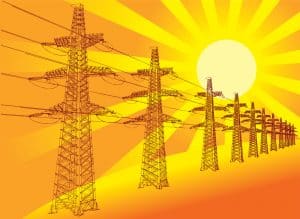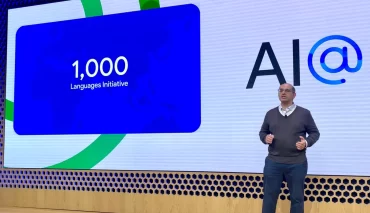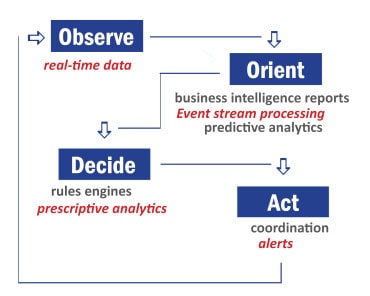
Quantum computing can greatly accelerate the ability to analyze data coming in from the grid to re-route and re-allocate resources.
In the old days, a coal-fired plant would spin the generators that produced electricity that was sent to nearby houses and businesses. Now, today’s energy companies are built on networks of generating plants, alternative energy producers, and even excess capacity delivered back from customers’ solar panels. Managing all of this and balancing loads across grids may benefit from analysis using quantum computing.
That’s the word from a recent report in T&D World, the voice of the electric power utility industry. The team of authors, led by Honghao Zheng, an engineer at Commonwealth Edison, looked at the ways quantum computing will shape the power grid of the future.
“Deploying the more sustainable and resilient electric grid of the future requires a sophisticated usage of data,” Zheng and his co-authors explain. “This begins with sensors and measurement infrastructure collecting a wide range of grid-relevant data, but also includes various forms of analytics to use the data to solve a wide range of grid problems. Many advanced analytics methods already are being used, including artificial intelligence and machine learning.”
See also: Quantum Computing Acceleration of AI in Pharma on the Rise
The role of quantum computing
Quantum computing can greatly accelerate the ability of these systems to analyze data coming in from the grid to re-route and re-allocate resources. “Forward-looking electric utilities are exploring the next step in enhancing these analytics, by understanding how emerging computing technologies can be leveraged to provide higher levels of service,” the co-authors note. “Among the most compelling examples of this is the potential use of quantum computing for grid purposes.”
For example, “an inherent part of modern power grids is the uncertainty stemming from various sources — such as variable generation, component failures, customer behavior, extreme weather, and natural disasters,” Zheng and his team relate. “Uncertainties cannot be controlled by grid operators, so the common practice is to define potential scenarios and plan for them accordingly.”
Forecasting is another issue quantum computing could address, they add. “The high volatility of distributed energy resources, such as solar and wind, may disturb normal system operation and undermine the system’s reliability. Accurate forecasting of variable generation would enable system operators to act proactively to avoid potential system frequency disturbances and stability concerns.”
Quantum computing “could make it possible to consider a broader range of data for forecasting such as detailed weather projections and trends and achieve a much more accurate forecast.”
ComEd is working with the University of Denver to further explore the potential of quantum computing in better managing the electrical grid.
Chris Nerney, writing in DXC’s Thrive solution, also notes the potential quantum computing brings to power delivery, and “along with machine learning and automation, to increase grid efficiency and security across the entire energy value chain, from power generation and transmission to distribution and demand management. The result should be cleaner electric grids that can handle fluctuations in power use in real time, anticipate short- and long-term demand, and harness energy from a growing list of renewable sources as needed.”
However, at this time, quantum is difficult to implement. Issues include “the unstable nature of qubits, which can lapse into decoherence from even minor interactions with the quantum computer’s immediate environment — such as slight changes in temperature, vibrations, noise, and electromagnetic waves, resulting in computational errors and collapse of the qubit. Some types of qubits can be stabilized only by keeping their operating environment at subspace temperatures (460 below zero).”
In other words, managing energy is going to require energy.





























